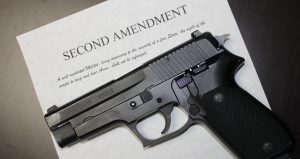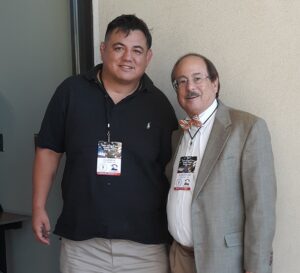
By Dave Workman
Editor
UPDATED: A federal district judge in Hawaii has ruled the state’s requirement that firearms registered under state law be inspected at the time of registration is an unconstitutional violation of the Second Amendment in a case that amounts to one of two victories this week in the Aloha State.
The other is an agreement permanently enjoining the Honolulu Police Department from disqualifying people cited for non-criminal violations of law from ever again owning or possessing a firearm.
At the center of both cases is San Diego attorney Alan Alexander Beck. Beck spoke by telephone with TGM about both cases.
According to Beck, there are two provisions in Hawaii statutes involved in the case of Yukutake v. Connors, named for one of two plaintiffs, Todd Yukutake, who was joined by another gun owner, David Kikukawa. Attorney General Clare Connors was the defendant. Beck, together with Mississippi attorney Stephen D. Stamboulieh, successfully challenged requirements in the statutes.
Yukutake is a director of the Hawaii Firearms Coalition and Kikukawa is a Coalition member.

One requirement is that individuals who obtain a permit to acquire a handgun do so within 10 days of getting the permit, Beck detailed. The other requirement is that the new handgun owners “physically bring their firearm to the police department for in-person inspection and registration within five days of acquiring,” according to the court ruling by Chief United States District Judge J. Michael Seabright.
“(B)oth provisions are subject to intermediate scrutiny,” Judge Seabright wrote. “And because the Government has entirely failed to demonstrate how each law effectuates its asserted interest in public safety, neither law can pass constitutional muster under this standard of review.”
This case has been in the works for about three years, attorney Beck recalled. He was critical of the state’s “onerous process” to purchase a handgun, which involves taking a handgun safety course, visit a gun shop and get details on the gun to be purchased, then apply in person for a purchase permit, then go through a 14-day waiting period, return to the police department to get the permit (they are not mailed), then pick up the gun within 10 days and finally within five days after that, bring the gun to the police department for inspection and to complete the registration process. This requires each applicant to visit the police department three separate times to complete the process.
It is “worth noting that Hawaii is the only state in the country to require in-person inspection and registration of firearms,” Judge Seabright observed in the closing paragraphs of his 33-page ruling. “As in the case of the 10-day permit use period, if it were truly a matter of common sense that in-person inspection and registration promoted public safety—or that misidentification in the absence of in-person inspection and registration was a problem—one would expect additional states to maintain similar requirements. The Government has failed to show that the in-person inspection and registration requirement is reasonably tailored to a significant, substantial, or important government interest.”
The process for buying a rifle or shotgun differs considerably, especially in the effective time span of a permit to purchase, Beck said. While the handgun permit is good for only 10 days, the permit to purchase a long gun remains effective for a full year.
In the other case, Roa v. City and County of Honolulu, Beck worked together with Honolulu attorney Kevin Gerared O’Grady in a challenge of the city police department’s long standing habit of denying permits for non-criminal violations of the state’s disorderly conduct law.
According to Beck, a violation of this statute is “legally no different than jaywalking.” The lawsuit was filed with a second plaintiff, Randall Chatman Franklin. Their argument was simple. The police were exceeding their authority under the statute, treating violations as crimes serious enough to deny a permit. Such a denial sticks with a person for life.
The city agreed, and the stipulation and order states plainly, “The parties agree that a non-criminal violation of HRS § 711-1101 does not disqualify a person from owning or possessing a firearm under HRS § 134-7(b). Therefore, it is stipulated that the Honolulu Police Department is permanently enjoined from denying a permit to acquire a firearm based on a non-criminal violation of (law).”
The agreement got the nod from the U.S. District Court for the District of Hawaii.
In an earlier version of this story, it was reported Alan Beck was “working with the Second Amendment Foundation. That is not the case. We apologize for the error.



